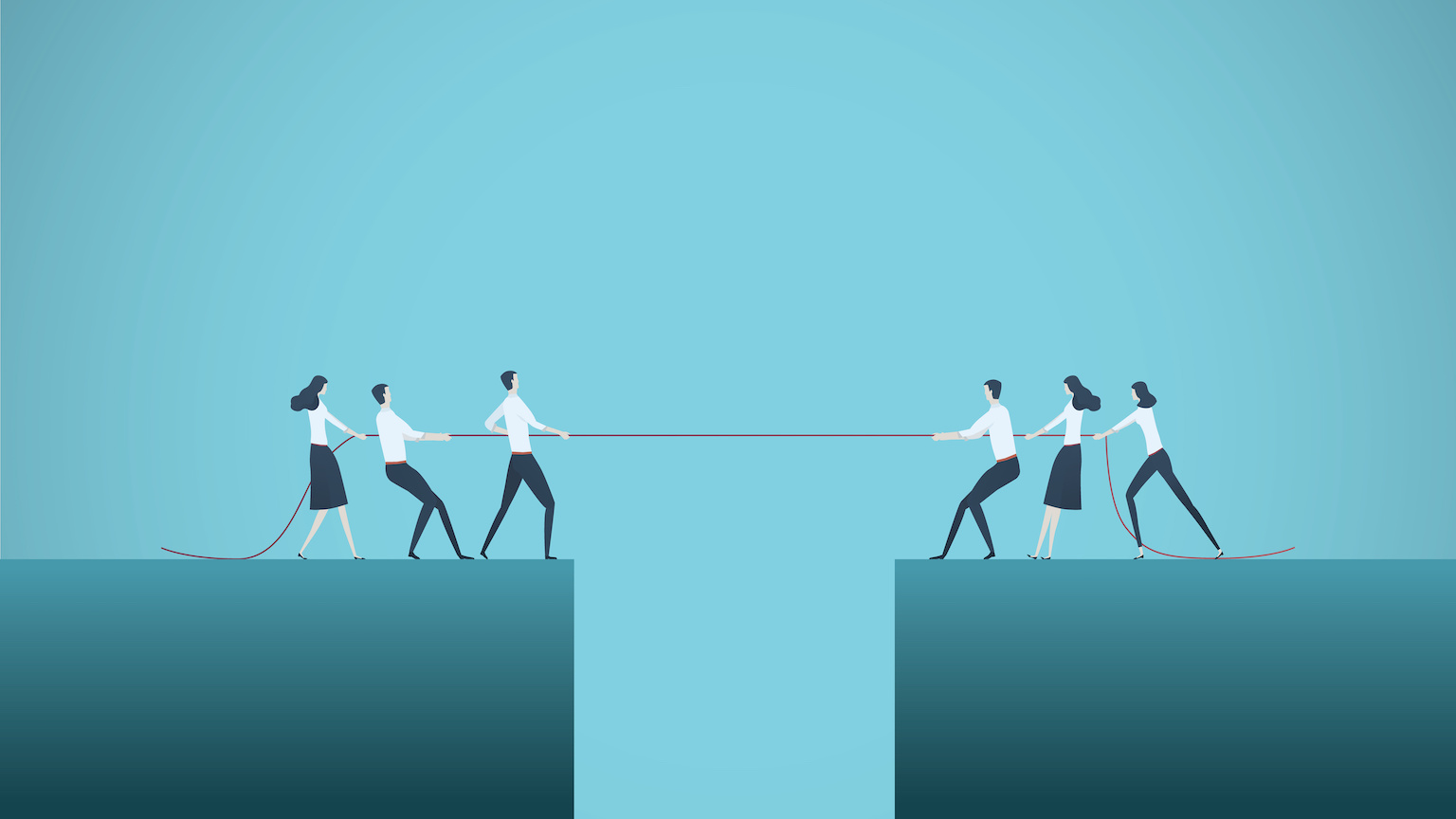Bo Seo, two-time world debate champion and Harvard’s former debate coach, believes our public conversations are in crisis. To Seo, our arguing skills have collectively atrophied over recent decades, resulting in bad arguments that have caused many people to lose faith in the idea that productive disagreements are even possible.
That’s why Seo suggests a framework called RISA — which stands for “Real, Important, Specific, and Aligned” — to help people pick their fights more wisely, and to give conversations the best possible chance of success. RISA can help us find a better way to disagree.
Seo believes that by making a contract with the other party and reminding them of the rules, conversations can be productive, and disagreements can lead to progress.
Seo: The tradition of good argument that I'm trying to advocate for is very much rooted in history. It goes back all the way to antiquity: where in ancient Greece, the ability to make your point persuasively, to engage other citizens in discussion and debate was seen as a kind of a requirement of citizenship. That's what it meant for us to govern ourselves. And that developed through tea houses and pubs and coffee houses in London, where while the debates of parliament were going on, citizens would gather and have the same debates between themselves. That tradition kind of carries forth in the United States with a lot of the founding fathers starting debate clubs and colleges; viewing part of their role as leaders and as founders of a new country as instilling in the nation, that spirit of debate.
And though that tradition has become harder and harder to discern in our everyday lives, there have been periods in the history of the U.S. and the history of democracies, and the history of the world, where those debates were a feature of people's day-to-day lives. One high-profile debate that comes to mind is the series of debates between the civil rights leader, James Farmer, and Malcolm X. These were a series of disagreements between people who are ostensibly on the same side, whose objectives were in some sense allied, but they were not shy about voicing their disagreements in really candid, strong, forth throated ways in the view of the public, knowing that the other side would respond respectfully, that they would be candid about the disagreements, and through that conversation, that they would be able to get somewhere they couldn't on their own.
There are three lessons that I take away from the Farmer-Malcolm X debates: The first is the importance of training. In order for us to be able to host the kinds of public debates again that enlarges our understanding of what's possible, we have to start training, and we have to start training our young people; we have to train ourselves to be able to engage in those conversations. The second is the importance of format. It's striking how long they were given to make their points. Often, they would be given quite a long stretch of time to present their arguments with the knowledge that once they had spoken, the other person would speak and they would get another turn. The third thing that you see in those debates is the importance of having a relationship with the person that you're disagreeing with, that's greater than just the disagreement itself. By introducing the family to one another. By seeing the other areas of life. By doing other things together. You can often enlarge the possibility of what you do within the debate.
Debates are only as good as the information and the knowledge and the skills that debaters bring to it. One of the more concerning things that we see, at the moment, is people's information diets not being sufficiently varied, not being sufficiently rich to sustain the kinds of conversations that we want to have. We cannot allow the debates that we see on cable television to be a kind of a replacement for the disagreements that we should be having in our day-to-day lives. So our political leaders or our favorite media personalities can't be like avatars to whom we outsource the work of thinking for ourselves and having these conversations for ourselves. And I think in order for us to start building back the skills of good argument, we usually need to do it face-to-face. And we might need to do it in the absence of an audience to start with, so that we resist the urge to perform for an audience, but rather listen and respond to the person across from us. So it may well be, that we can one day equip ourselves to engage in a better form of social media, but I tend to think the starting place has to be face-to-face, has to be maybe away from an audience to begin with, so that we're building one interaction at a time, the skills that we have lost.






